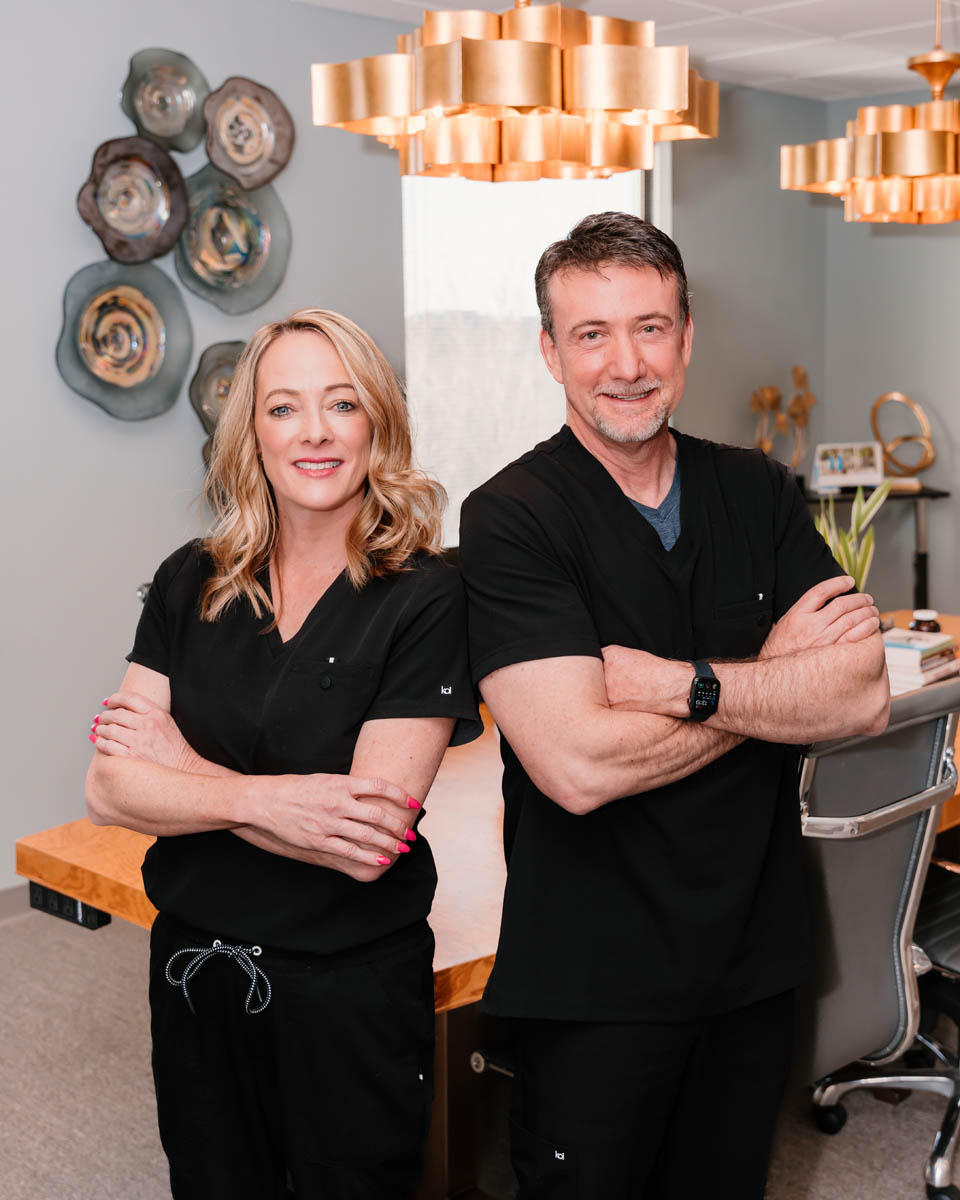Biologically identical hormones, often referred to as bio-identical, or “natural” hormones, are identical in molecular structure to the hormones the body makes. When a bioidentical hormone circulates through your system and binds with a receptor, the fit is the same as if your body had produced that hormone. Synthetic hormones given by most endocrinologists, may be foreign to the body and are often treated by the body as toxins. They may not have the same molecular structure as human hormones. When one of these binds with its receptor, the fit is not exact, sometimes resulting in side effects.
Biologically identical hormones generally provide advantages over synthetic hormones when metabolized. Metabolism is performed by enzymes whose work is to break down (metabolize) hormones – the enzymes won’t metabolize hormones they don’t recognize, which can cause non-bio-identical hormones to sit on the hormone receptors longer than they should, which in turn can cause over-stimulation of the receptors and possible side effects. Additionally, to be effective hormones need to communicate with other hormones. Synthetics don’t always do this effectively or correctly. The goal is to improve cellular communication, restore balance and optimize function. The optimal approach replenishes all suboptimal and deficient hormones at one time.
Why replenish multiple hormones, rather than one at a time? The answer is very simple. We are not one-hormone creatures. Hormones do not work in isolation from one another; they work in harmony, like individual instruments in a symphony. The hormones in our endocrine system have synergistic and overlapping effects in the body. By improving the system with one, you may need less of another to make further improvements. In addition, chances of side effects are reduced when you replace less of each hormone. No matter how many hormones you replace, patience and getting in touch with your body’s responses to hormone replacement are the keys to success. The third level of priority, bioidentical hormone replenishment therapy, should avoid use of unnecessary hormones and unnecessarily high doses of hormones. Optimal results, then, depend on implementing the first two orders of priority before hormone replenishment. To reiterate, this begins with a hormonally balanced nutritional lifestyle.
Hormone production and balance depends on the foods we eat. The next step is the integration of regular exercise into your life. Exercise by itself can boost natural hormone production, improve hormone receptor sensitivity, and improve hormonal communication. Appropriate and judicious use of targeted nutritional supplements can further improve hormonal balance.
The final step before starting a hormone replacement program is to manage cortisol levels through effective stress-response management. Chronic elevated levels of the stress hormone cortisol negatively impact the blood levels of a variety of other hormones, such as DHEA, testosterone, growth hormone, thyroid, and so on. The efficacy of the hormones you ultimately decide to replenish will be improved markedly in this manner. Moreover, you will find it much easier to sustain and manage optimum hormone levels. Flowers Medical Group will design a plan to meet your individual needs.
Finally, hormone replacement requires careful monitoring by Atlanta Dr. Lynn Flowers M.D. with periodic blood and saliva tests to assure you are achieving safe and effective levels. Hormone replacement therapy is never indicated unless sufficient clinical evidence supports it. Physical signs and symptoms are a starting point, but blood and saliva testing provides an objective means of knowing when and what doses of hormones are required and safe. An initial laboratory panel is required prior to initiating hormone replacement. Generally, a few months after therapy has been initiated your doctor will measure the levels again. Everyone responds differently to hormone replacement therapy so, be patient; it may take several dosage modifications to reach optimum response. As long as you continue to use hormone replacement therapy, you will need periodic blood or saliva testing and evaluation by your physician, as your body changes over time necessitating occasional dosage adjustments.
Contact us today for an evaluation of your hormones!

TESTIMONIALS
OUR LOCATION
